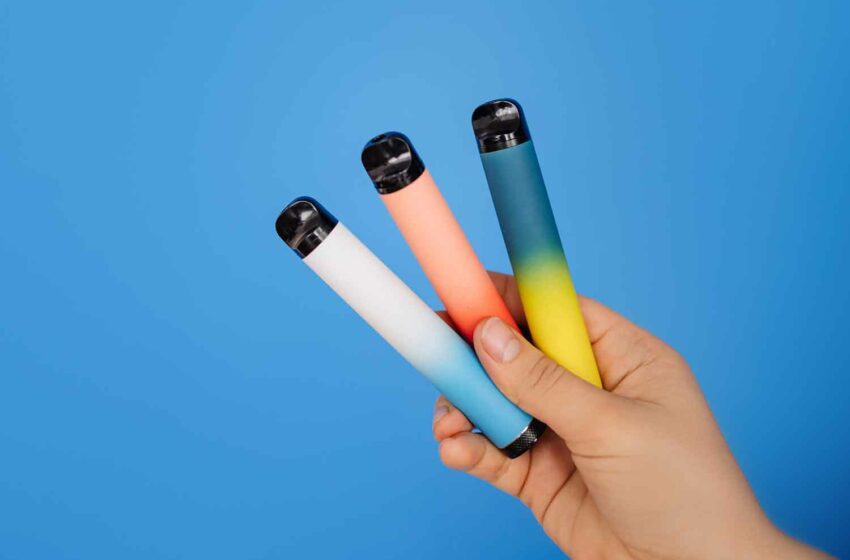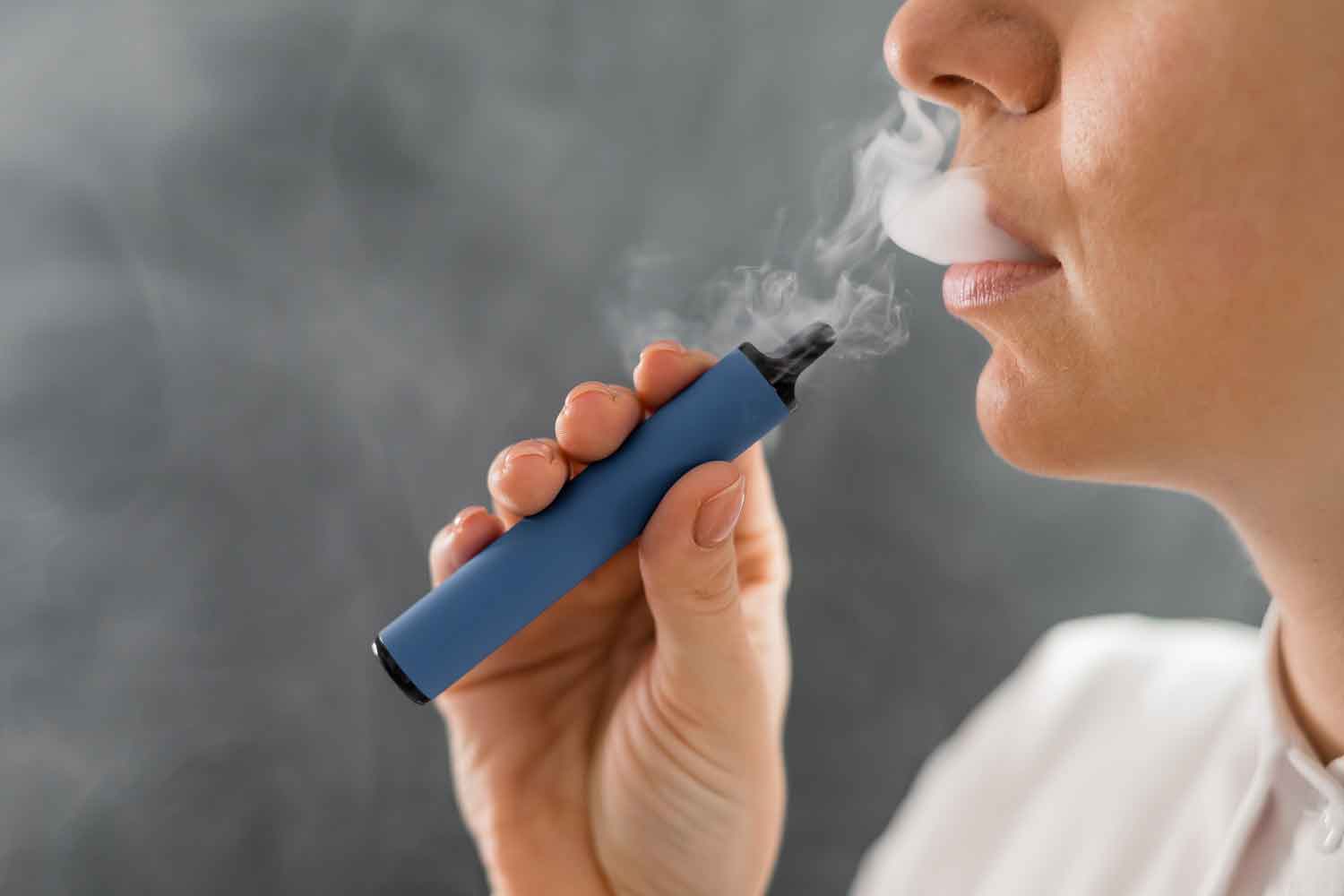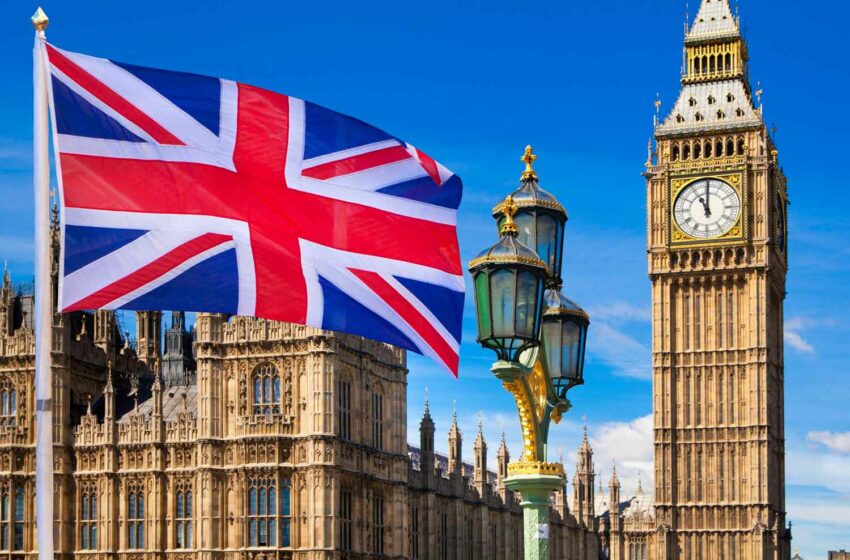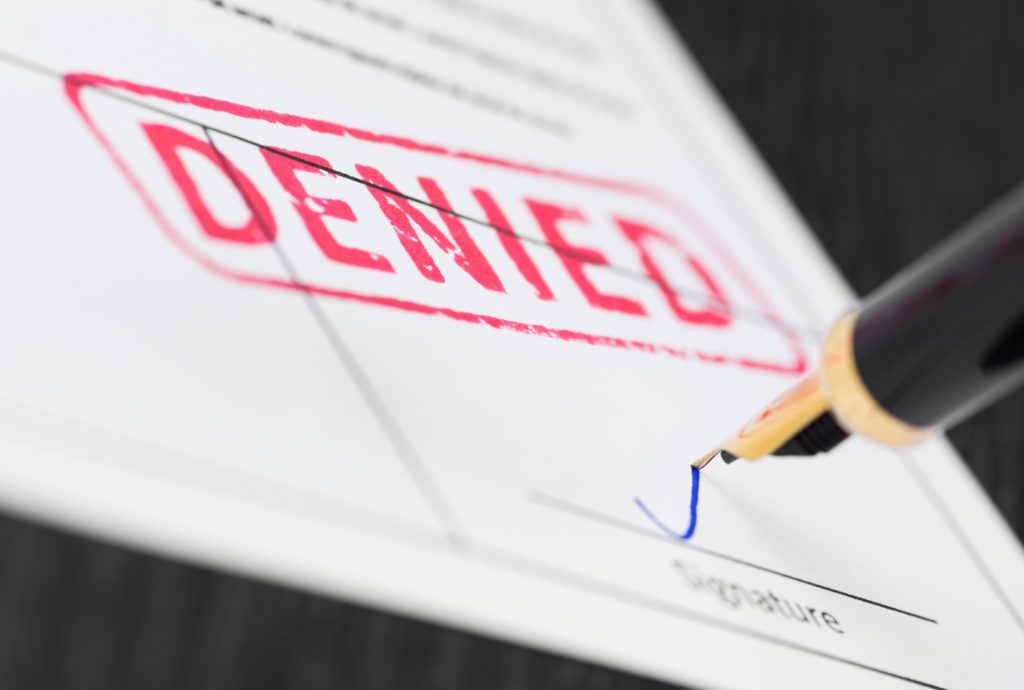Healthcare providers who are working with adult patients struggling to stop smoking should consider discussing e-cigarettes as a potential tool if they’ve already tried FDA-approved medications, say tobacco researchers with MUSC Hollings Cancer Center.
Benjamin Toll, director of the MUSC Health Tobacco Treatment Program, and Tracy Smith, associate professor in the Addiction Sciences Division of the Department of Psychiatry and Behavioral Sciences, partnered with Brian King, director of the Center for Tobacco Products at the U.S. Food and Drug Administration, to write a commentary in Nature Medicine that lays out the relative risk of e-cigarettes compared with traditional combustible cigarettes. Existing scientific evidence indicates that both products have health risks, but that e-cigarettes generally have lower risks than cigarettes.
To be clear—neither option is good for your health, Toll and Smith said. And they certainly don’t want any youth, or adults who don’t smoke, to take up e-cigarette use. But among adults who have already tried FDA-approved cessation medicines, if the choice is between continuing to smoke traditional cigarettes or switching completely to e-cigarettes, then a complete switch should be encouraged, they said. They were motivated to work with King to write this commentary because they saw confusion among the general public and doctors about the relative harms of each product.
“It really bothered me that there are well-intentioned, smart healthcare providers who think that e-cigarettes are worse than smoking cigarettes,” Toll said in a statement. “It’s simply not true.”
Toll, who is currently serving as president of the Society for Research on Nicotine and Tobacco, wanted to expand the conversation that health care providers can have with patients about ways to stop smoking.
There are seven FDA-approved smoking cessation aids, including medication and nicotine replacement options like the patch. These smoking cessation products, especially when combined with behavioral counseling, improve a person’s chances of quitting smoking. But because nicotine is so addictive, many people still struggle. That’s where Smith and Toll see a place for e-cigarettes.
“Doctors and other health care professionals don’t know what to say or how to talk about it,” Smith said. “I always say, ‘If you have somebody who smokes cigarettes, they are standing in a convenience store every single day, buying the most harmful tobacco product they could possibly be buying.’ And it’s a real injustice not to say to them, ‘Hey, there are nicotine products you could buy every day that would be a whole lot less likely to kill you.’”
However, Toll and Smith are very specific about which types of e-cigarettes they’re referring to. When they say that e-cigarettes have fewer toxicants and cause less harm than cigarettes, they’re referring specifically to the 23 products that have received FDA authorization for marketing. It’s worth noting that all 23 of these products are tobacco-flavored, not fruity, chocolatey or candy-flavored.
Smith explained that the FDA created two paths for e-cigarette manufacturers to gain authorization. The first path would allow manufacturers to market their e-cigarettes as smoking cessation devices.
“Thus far, no company has done that—as far as we know, they have not even applied,” Smith said.
The second path allows companies to market their products as tobacco products, but makes no claims about smoking cessation. Companies have to show that their products are appropriate for the protection of public health – specifically, that the benefits of the product for helping adults who smoke to transition completely outweighs the known risk of these products to youth and nonusers.
Besides the likelihood that the product will entice young people, the FDA looks at everything from environmental impact to whether users completely switch to the e-cigarette product from cigarettes. Complete switching, rather than going back and forth between e-cigarettes and cigarettes, is an important factor. If people use both products – something that researchers call “dual use” – then they’re still exposing themselves to the carcinogens and toxicants in cigarettes.
“So far, the FDA has issued more than a million denials and 23 authorizations,” Smith said.
Due to the rigorous nature of the reviews, Smith and Toll believe that doctors can reasonably share that list of 23 authorized e-cigarettes with people who are struggling to stop smoking.
In addition, there’s increasing evidence suggesting that e-cigarettes can help adults who smoke to completely transition away from cigarettes, they said. Recent large-scale studies published in JAMA Internal Medicine and the New England Journal of Medicine showed that e-cigarettes helped people to stop smoking. Further, Smith said, a Cochrane Review conducted earlier this year concluded that there is evidence from enough high-quality studies to say that e-cigarettes are more likely to help people to quit than nicotine replacement therapy, which includes nicotine gum, nicotine lozenges and the patch.
E-cigarettes remain controversial though.
“Some believe that we shouldn’t be allowing new tobacco products on the market that could potentially be appealing to youth, no matter what the benefit is to adults who smoke. And I’m just not in that camp because cigarettes are the primary way that tobacco kills people,” Smith said. “For me, because cigarettes are responsible for the vast majority of the deaths and illnesses from tobacco, I think that having less harmful alternatives out there for adults, especially if we can reduce the appeal to youth, is really important.”



















